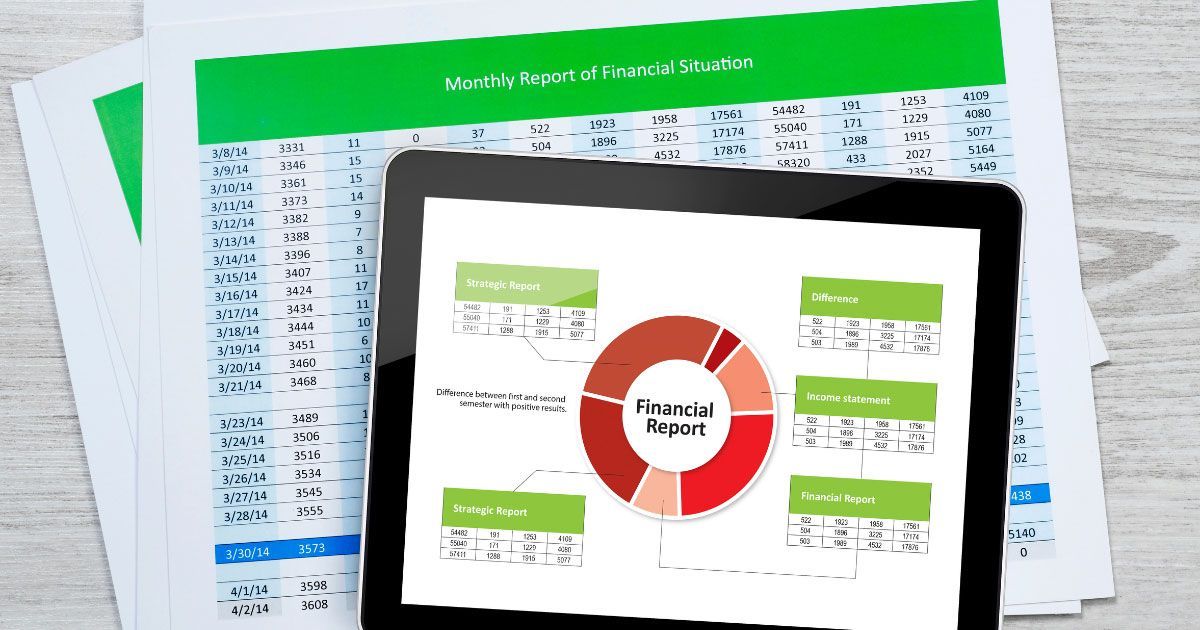Most Important Financial Reports and Metrics For Your Medical Practice
The financial success of a medical practice is heavily based on the financial reports and metrics that are tracked and analyzed on a regular basis. These include revenue cycle management metrics, key performance indicators, profitability ratios, and benchmarking. By analyzing and understanding these metrics, medical practices can identify areas for improvement and make informed decisions to optimize their finances
Key Financial Reports Your Practice Needs To Run

We understand that, as a medical practice, it is essential to keep a close eye on your financial performance. To help you stay on top of your finances, we have put together a comprehensive guide to the financial reports your practice needs to run.
• Revenue Report
The revenue report is an essential financial report that provides an overview of your practice's income. It details the total revenue generated from patient visits, procedures, and other services provided. This report will give you insights into how much money your practice is making and where the revenue is coming from.
• Expenses Report
The expense report is a critical document that helps you keep track of your practice's expenses. It includes details on the cost of supplies, rent, payroll, and other expenses incurred by your practice management. This report will give you an idea of how much money your practice is spending and where the money is going.
• Accounts Receivable Report
The accounts receivable report is a critical report that provides an overview of the outstanding payments owed to your practice management by the patient and insurance company. This report will help you identify any payment delays, payment errors, or outstanding balances that need to be collected.
• Accounts Payable Report
The accounts payable report is a critical report that provides an overview of your practice's outstanding bills and invoices. This report will help you stay on top of your expenses and ensure that you pay your bills on time.
• Profit and Loss Statement
The profit and loss statement is a crucial report that overviews your practice's financial performance over a specified period. It includes details on your practice's revenue, expenses, and net income or loss. This report will help you identify areas where your practice is performing well and areas that need improvement.
• Balance Sheet
The balance sheet is a financial report that provides an overview of your practice's assets, liabilities, and equity at a specific point in time. It includes details on your practice's cash, investments, accounts receivable, and other assets, as well as your practice's debts and equity. This report will help you understand your practice's financial position and make informed financial decisions.
• Cash Flow Statement
The cash flow statement is a financial report that provides an overview of your practice's cash inflows and outflows over a specified period. It includes details on your practice's cash flow from operations, investments, and financing activities. This report will help you understand how much cash your practice is generating and how much cash is going out.
Why Financial Reporting is Critical For Medical Practices

• Evaluate Practice Health
Investors and lenders need to see accurate and detailed financial reports to evaluate the practice's financial health and make informed decisions regarding financing. Financial reports can provide insight into the practice's profitability, liquidity, and solvency, making them a critical tool for attracting investors and securing financing.
Therefore, medical practices must maintain accurate and up-to-date financial reports to ensure they have access to the capital they need to operate and grow their business. Having robust financial reporting systems in place is critical for medical practices to ensure they can produce accurate and detailed financial reports quickly and efficiently when needed.
• Reassurance to Stakeholders
Another important reason for medical practices to maintain accurate and detailed financial reports is to provide reassurance to stakeholders. Medical practices have several stakeholders, including patients, employees, and suppliers, who rely on the practice's financial stability and ongoing viability. Accurate financial reports can provide reassurance to these stakeholders that the practice is financially sound, able to meet its financial obligations, and has a clear strategy for future growth and development. Additionally, financial reports can help medical practices identify potential financial issues early, allowing them to take corrective action before problems escalate.
• Compliance and Law
Medical practices are subject to various financial regulations, including tax laws, accounting standards, and industry-specific regulations. An accurate financial report is essential to comply with these regulations and avoid legal and financial penalties. Moreover, medical practices must ensure that their financial reports are transparent and accurate to maintain their reputation and avoid any negative impact on their business.
Tips For Using Financial Reports And Metrics To Improve The Financial Health Of Your Medical Practice

1. Review financial reports regularly
Medical practices should regularly review - monthly at the very least - financial reports, including balance sheets, profit, and loss statements, and cash flow statements, to identify any issues and make informed decisions.
2. Use Financial Reports to Identify Areas for Improvement
By identifying areas for improvement, medical practices can develop actionable strategies to address them and improve their financial health. Moreover, medical practices can also use financial reports to track their progress toward their financial goals and adjust their strategies as necessary.
3. Seek Help from Experts
Medical practices should seek professional advice from accountants, financial advisors, consultants, revenue cycle managers, or other experts to help them identify financial issues and develop strategies to address them.
Conclusion
In conclusion, If you're a medical practice looking to improve your financial health and optimize your revenue cycle management, we recommend considering the service of Prosperis Consulting. Our experienced consultants can help you analyze your financial reports and metrics, identify areas for improvement, and develop actionable strategies to achieve your financial goals.
By partnering with Prosperis Consulting, you can benefit from their expertise in revenue cycle management, financial analysis, and compliance. Our services can help you streamline your financial reporting process, reduce errors, and improve efficiency, ultimately resulting in increased profitability and financial success for your practice.
So if you're ready to take your medical practice's financial health to the next level, we encourage you to
contact Prosperis Consulting today to learn more about our revenue cycle management services and how we can help you achieve your financial goals.


